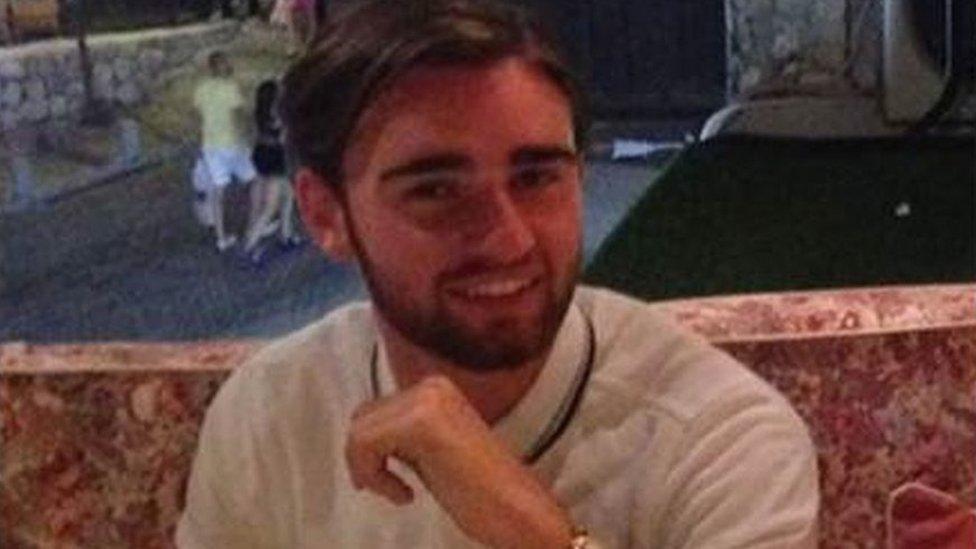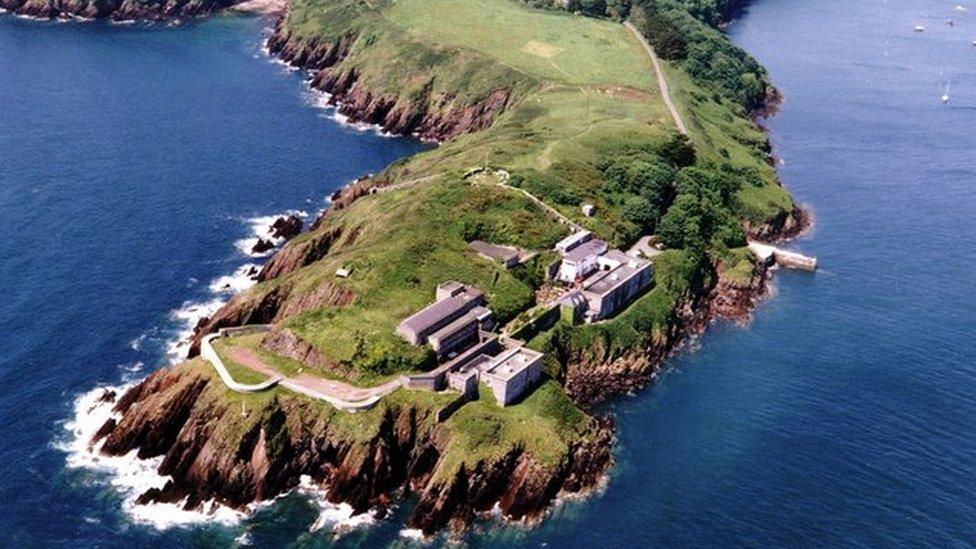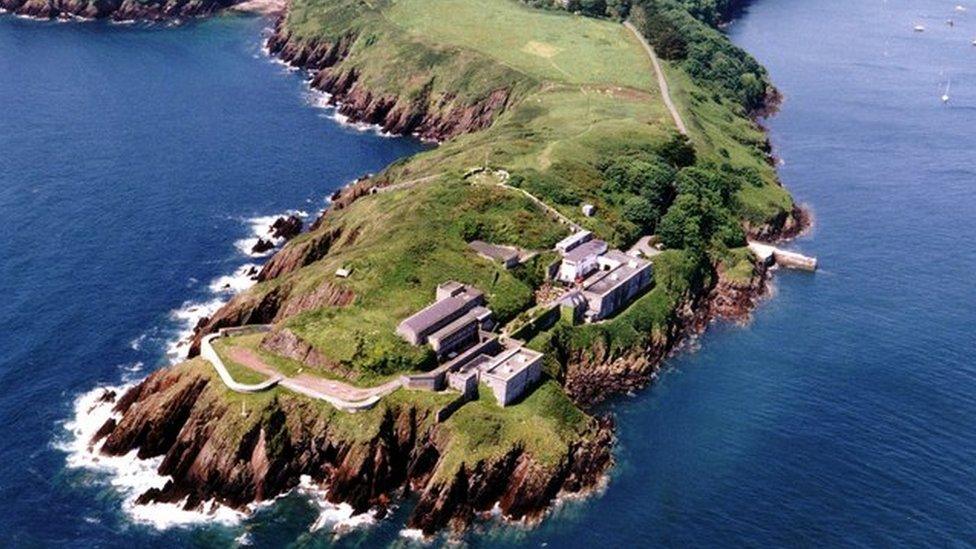Dale Fort cliffs death pupil Paddy Dear 'had infection'
- Published

A teenager whose body was found at the bottom of cliffs in Pembrokeshire had an infection which could have caused disorientation, an inquest has heard.
Paddy Dear, 16, of Hornchurch, London, was on a field trip at Dale Fort when he died on 17 March 2016.
The inquest was told he had group A streptococcal septicaemia.
Coroner Mark Layton recorded a narrative conclusion, saying Paddy died following a fall from height while suffering from the infection.
Paddy went to the toilet at about 17:30 GMT but did not return and was later found by police after a search.
Paddy Dear's uncle, Danny Coyle, said his nephew's death had helped raise the profile of sepsis
A pathologist's report said the infection could cause "disorientation, confusion, unsteadiness and an inability to comprehend dangerous situations".
Some of Paddy's friends, from Campion School, told police he had been having trouble sleeping at Dale Fort.
One said he had not managed to get to sleep until about 04:00 one night and slept on the minibus to and from a number of field trips.
Judith Courie, who lives on the lane to Dale Fort, told the inquest she saw Paddy on the sea wall opposite her home.
"He was pacing up and down," she said.
"I would say not say he was in control. He was agitated."

The Dale Fort Field Centre
Christine Millican, head of centre at Dale Fort for the Field Studies Council, said visiting students were "warned of the danger of the cliffs" around the fort and there were strict protocols for when a student goes missing.
Paddy's parents, Michael and Patrica Dear, asked Ms Millican why no-one was assigned to watch and wait at the fort's gates while the search was carried out.
"Nothing we do today's going to bring Paddy back," Mrs Dear said.
"But had someone been put at the gate, it could have made a significant difference."
Ms Millican said she did not believe locking the gates would have made a difference.
"We will certainly consider all issues raised here and look at what we can do if this awful situation was to happen again," she said.
- Published18 March 2016
